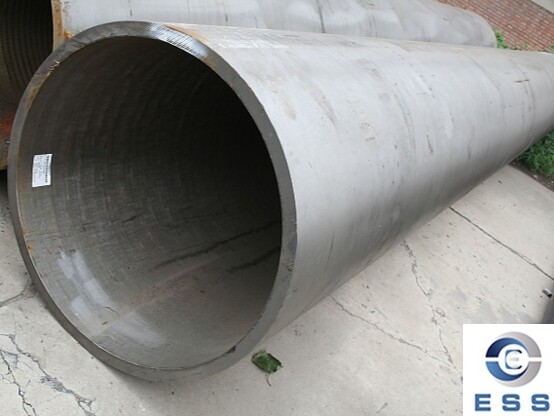
The selection of boiler
tube diameter needs to consider the purpose, material, pressure level and
working environment. The appropriate diameter can improve the operating
efficiency and safety of the boiler.
As an important part of boiler equipment,
boiler tube is usually made of seamless
pipe and undertake multiple tasks such as transferring heat and bearing
pressure. The diameter selection of boiler tubes directly affects the
performance and safety of the boiler. So, how to choose the diameter of boiler
tubes?
Boiler tube diameter
The diameter size of boiler tubes varies,
and the common ones are DN15, DN20, DN25, DN32, DN40, DN50 and other
specifications. These diameter sizes are selected according to factors such as
the purpose, power and working environment of the boiler. Generally speaking,
large boilers need to use larger diameter boiler tubes to ensure sufficient
heat transfer efficiency and pressure bearing capacity; while small boilers can
choose smaller diameter boiler tubes to reduce costs and save space. This is
just like in oil production, in order to ensure that crude oil can be
transported over long distances and efficiently, large diameter oil casing pipe will
be selected.
Uses of boiler tubes of different
diameters
Boiler tubes of different diameters play
different roles in boilers. Large-diameter boiler tubes are usually used in key
parts such as main steam pipes and main feed water pipes. They need to
withstand higher pressures and temperatures, and have relatively high material
requirements. Small-diameter boiler tubes are often used in auxiliary parts
such as branch pipes and drain pipes. They have relatively low material
requirements, but they also need to have certain pressure bearing capacity and
corrosion resistance.
Recommendations for selecting boiler
tube diameters
When selecting the diameter of a boiler
tube, the following factors should be considered comprehensively:
1. The purpose and power of the boiler
Choose the appropriate diameter size
according to the actual needs of the boiler to ensure that the heat transfer
efficiency and pressure bearing capacity meet the requirements.
2. Material and process
The material and process of the boiler tube
also have a certain impact on the diameter selection. High-quality materials
and processes can improve the pressure bearing capacity and service life of the
boiler tube, thereby reducing maintenance costs.
3. Safety considerations
When selecting the diameter of a boiler
tube, its safety should be fully considered. Too small a diameter may cause
pipe blockage or insufficient pressure bearing capacity, while too large a
diameter may increase costs and reduce heat transfer efficiency.
Summary
In summary, the selection of boiler tube
diameter needs to consider multiple factors, including the purpose, power,
material, process and safety of the boiler. Only by choosing the appropriate
diameter can the normal operation and safety of the boiler be ensured.
Therefore, when purchasing boiler tubes, it is recommended to consult a
professional boiler engineer or manufacturer to ensure that the appropriate
product is purchased.













 Eastern Steel Manufacturing Co.,Ltd not only improve product production and sales services, but also provide additional value-added services. As long as you need, we can complete your specific needs together.
Eastern Steel Manufacturing Co.,Ltd not only improve product production and sales services, but also provide additional value-added services. As long as you need, we can complete your specific needs together.










